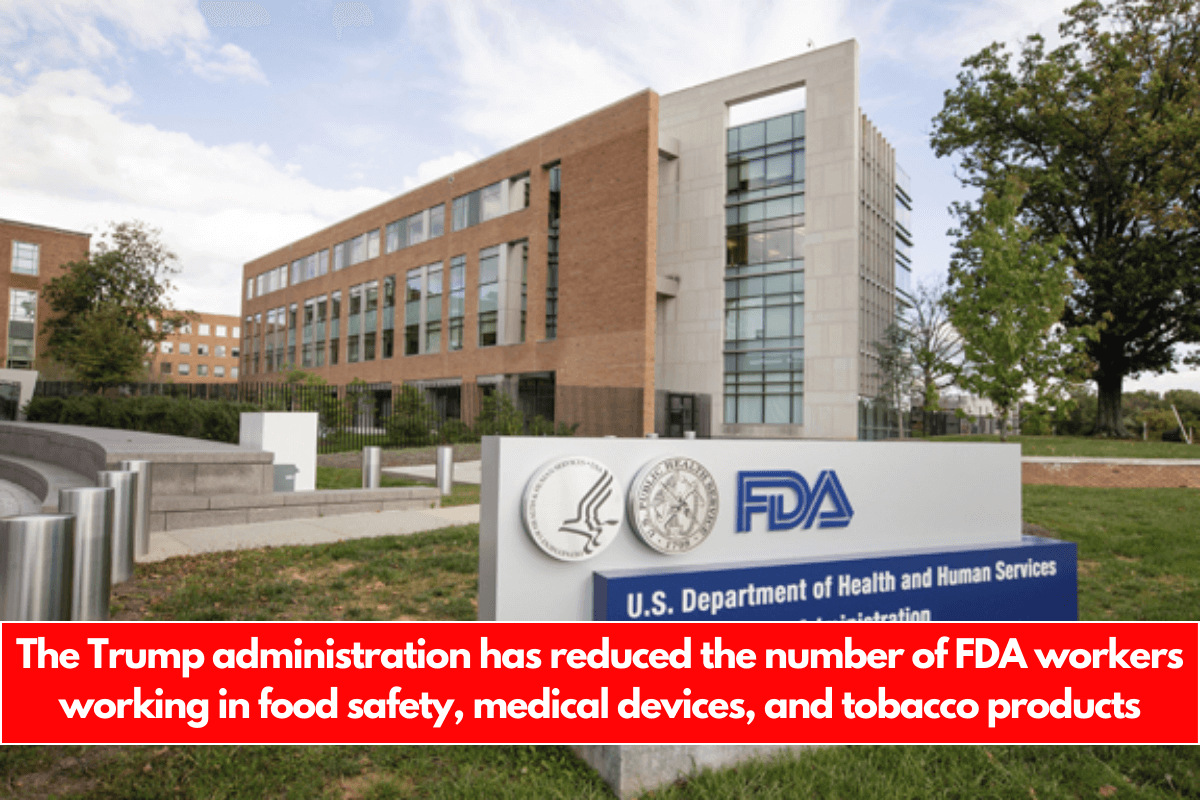The Trump administration’s effort to reduce the size of the federal workforce reached the Food and Drug Administration this weekend, when newly hired employees who oversee the safety of food ingredients, medical devices, and other products were fired.
Probationary employees across the FDA were notified Saturday evening that their jobs were being eliminated, according to three FDA staffers who spoke to The Associated Press on the condition of anonymity because they were not authorized to speak publicly.
The total number of positions eliminated Sunday was unknown, but the firings appeared to target employees in the agency’s centers for food, medical devices, and tobacco products, which include oversight of electronic cigarettes. It was unclear if FDA employees who review drugs were exempt from the layoffs.
On Friday, the US Department of Health and Human Services announced plans to fire 5,200 probationary employees from its agencies, which include the National Institutes of Health, the Food and Drug Administration, and the Centers for Disease Control and Prevention.
According to people who spoke with the AP on the condition of anonymity on Friday, the CDC plans to lay off nearly 1,300 probationary employees.
However, as of early Sunday afternoon, approximately 700 people had received notices, according to three sources who spoke on the condition of anonymity because they were not authorized to speak publicly. They claimed that none of the CDC layoffs affected the young doctors and researchers who work in the Epidemic Intelligence Service.
The FDA is headquartered in the Maryland suburbs outside of Washington and employs nearly 20,000 people. It has long been a target of newly sworn-in health secretary Robert Kennedy Jr., who accused the agency last year of waging a “war on public health” by refusing to approve unproven treatments like psychedelics, stem cells, and chelation therapy.
Kennedy has also advocated for the removal of thousands of chemicals and colorings from US foods. However, the cuts at the FDA include staffers in charge of reviewing the safety of new food additives and ingredients, according to an FDA employee familiar with the firings.
An HHS spokesperson did not immediately respond to a request for comment on Sunday afternoon.
Nearly half of the FDA’s $6.9 billion budget comes from fees paid by companies it regulates, such as drug and medical device manufacturers, allowing the agency to hire additional scientists to quickly review products. Eliminating these positions will not result in lower government spending.
According to a former FDA official, cutting recent hires could backfire by eliminating staffers who are younger and have more current technical skills.
The FDA’s workforce is skewed toward older workers who have been with the agency for one or two decades, and the Government Accountability Office stated in 2022 that the FDA “has historically faced challenges in recruiting and retaining” staff due to higher pay in the private sector.
“You want to bring in new blood,” said Peter Pitts, a former FDA associate commissioner for President George W. Bush. “You want people with new ideas, greater enthusiasm and the latest thinking in terms of technology.”
Mitch Zeller, former FDA director for tobacco, stated that the firings are an attempt to “demoralize and undermine the spirit of the federal workforce.”
“The combined effect of what they are trying to do is going to destroy the ability to recruit and retain talent,” Zeller informed the crowd.
The FDA’s inspection force has been especially strained in recent years, following a wave of departures during the COVID-19 pandemic, and many of the agency’s current inspectors are new hires. It was not immediately clear if those employees were exempt.
FDA inspectors are in charge of thousands of food, drug, tobacco, and medical device facilities around the world, but the Associated Press reported last year that the agency was dealing with a backlog of approximately 2,000 uninspected drug facilities that had not been visited since before the pandemic.
The agency’s inspection force has also been chastised for not acting quickly enough to detect recent problems with infant formula, baby food, and eyedrops.
